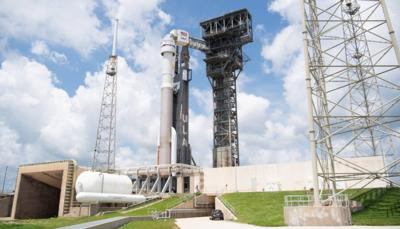Mon, Aug 02, 2021
Advertisement
More News
 ANN's Daily Aero-Term (05.17.24): Very High Frequency
ANN's Daily Aero-Term (05.17.24): Very High Frequency
Very High Frequency The frequency band between 30 and 300 MHz. Portions of this band, 108 to 118 MHz, are used for certain NAVAIDs; 118 to 136 MHz are used for civil air/ground voi>[...]
 ANN's Daily Aero-Linx (05.17.24)
ANN's Daily Aero-Linx (05.17.24)
Aero Linx: Aviation Suppliers Association Established February 25, 1993, the Aviation Suppliers Association (ASA), based in Washington, D.C., is a not-for-profit association, repre>[...]
 ANN FAQ: Submit a News Story!
ANN FAQ: Submit a News Story!
Have A Story That NEEDS To Be Featured On Aero-News? Here’s How To Submit A Story To Our Team Some of the greatest new stories ANN has ever covered have been submitted by our>[...]
 Classic Aero-TV: ANN Visits Wings Over The Rockies Exploration Of Flight
Classic Aero-TV: ANN Visits Wings Over The Rockies Exploration Of Flight
From 2021 (YouTube Version): Colorado Campus Offers aVariety Of Aerospace Entertainment And Education Wings over the Rockies Exploration of Flight is the second location for the Wi>[...]
 Airborne Affordable Flyers 05.16.24: PRA Runway, Wag-Aero Sold, Young Eagles
Airborne Affordable Flyers 05.16.24: PRA Runway, Wag-Aero Sold, Young Eagles
Also: Paramotor Champ's, Electric Ultralight, ICON BK Update, Burt Rutan at Oshkosh! The Popular Rotorcraft Association is reaching out for help in rebuilding their private runway >[...]
blog comments powered by Disqus




